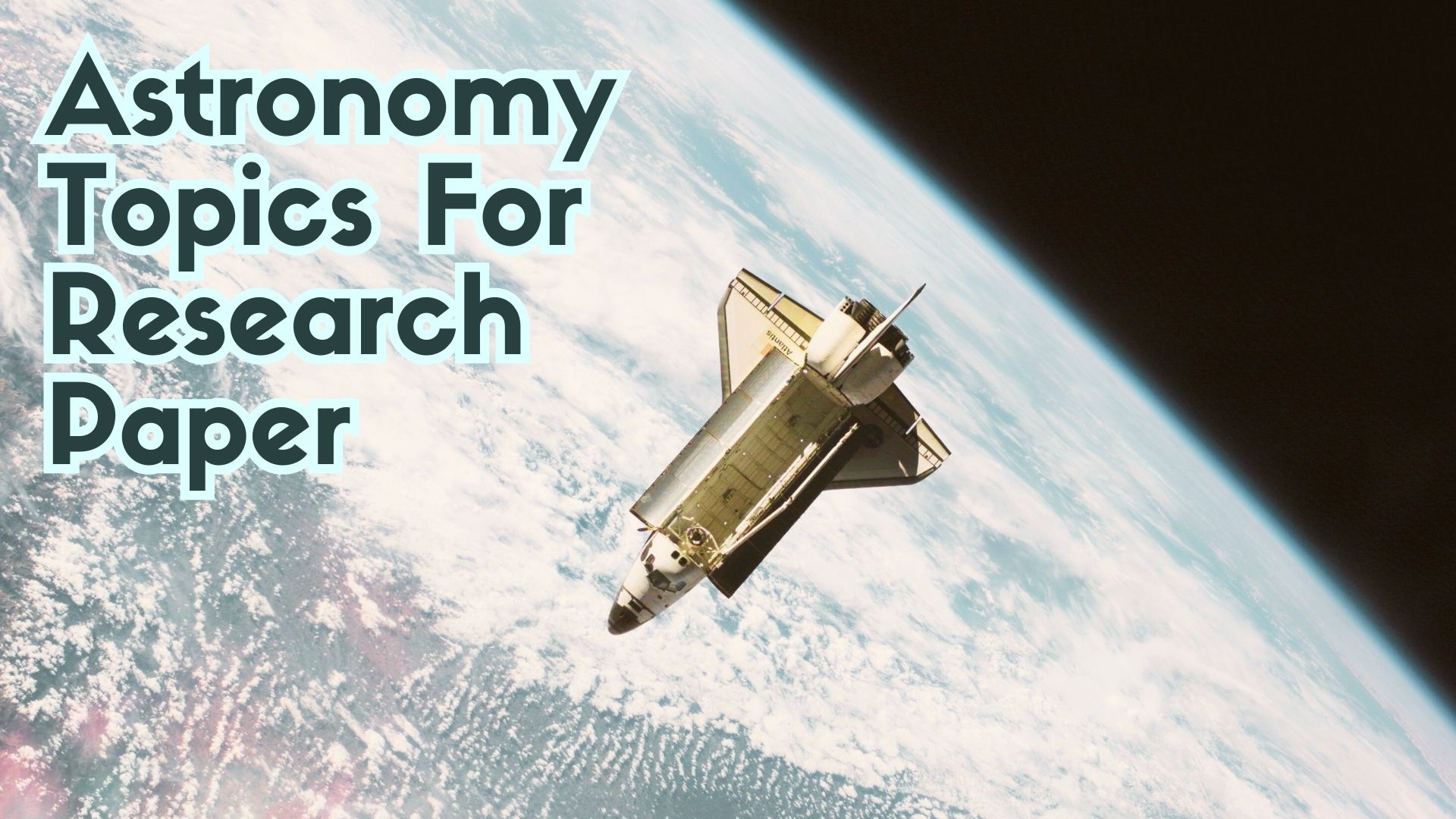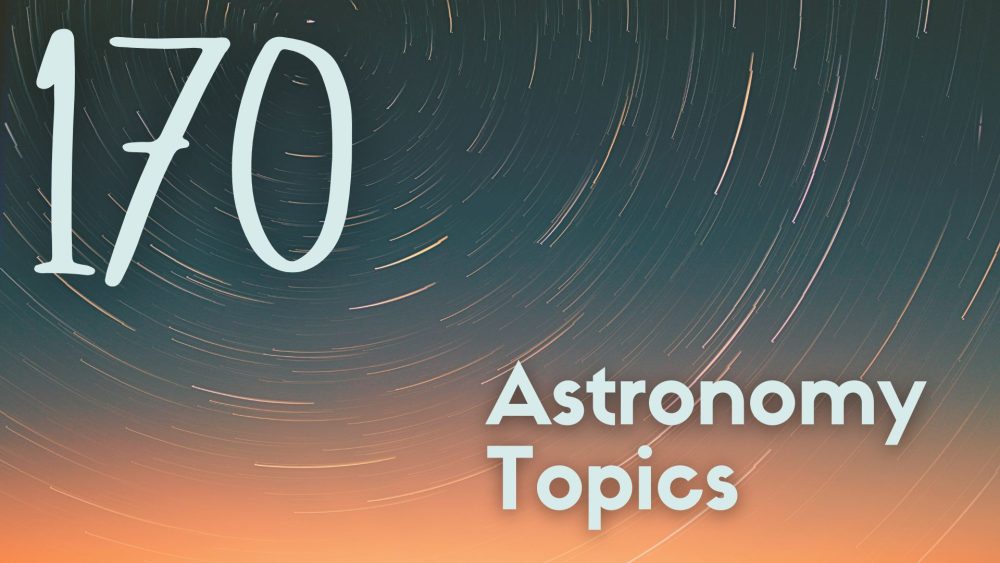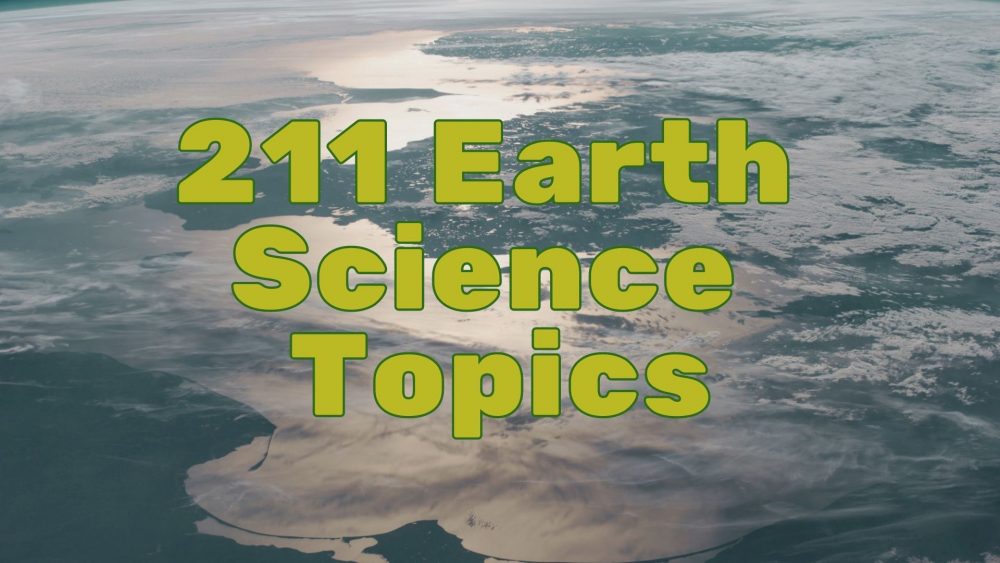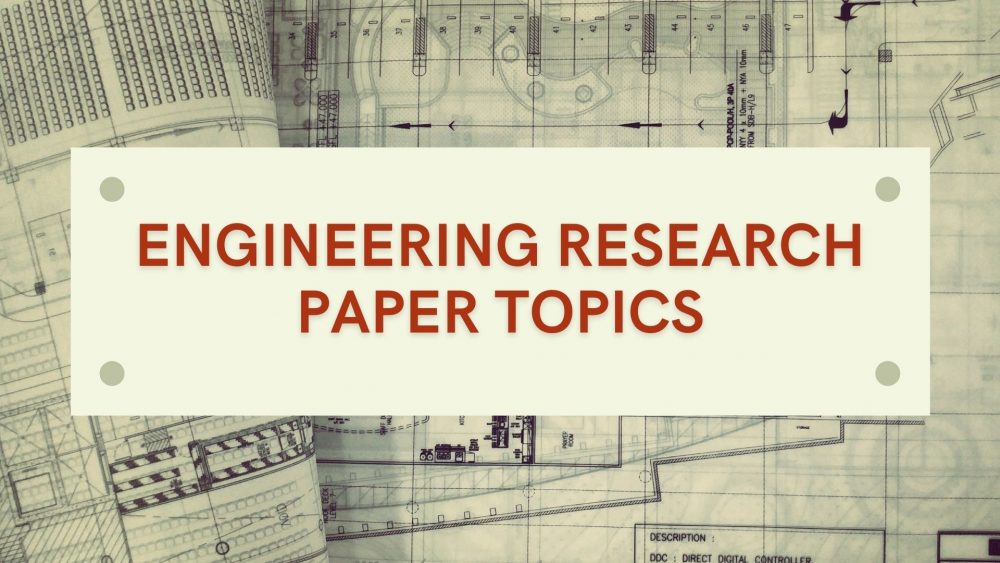Astronomy, which is the study of celestial objects and phenomena, has indeed captured the imaginations of humanity since time immemorial. From unraveling the mysteries of distant galaxies to investigating the nature of dark matter, astronomy, interestingly, indeed encompasses a wide range of exciting research topics.
But before we look at a wide range of excellent astronomy-related research topics that college students, professors, teachers, and other professionals will find useful, let us take a small detour to what astronomy really is.
What Is Astronomy?
Astronomy is the scientific discipline that essentially focuses on the study of celestial objects such as stars, planets, galaxies, and other phenomena in the universe. In other words, astronomy is the observation, theoretical modeling, and interpretation of astronomical data for the purposes of deepening our understanding of the cosmos.
Characteristics Of A Good Astronomy Research Paper
Here are some characteristics of a good astronomy paper:
Originality: A good astronomy research paper should provide unique insights and be able to address unanswered questions.
Clarity: A good astronomy research paper should be able to simplify and communicate complex concepts effectively.
Scientific-rigor: A good astronomy research paper should be able to present a well-defined methodology and provide reliable data.
Relevance: A good astronomy research paper should be relevant. It should be able to explore emerging areas of study or address current astronomical issues.
Contribution: A good astronomy research paper should be able to advance existing knowledge and provide avenues for further research.
Astronomy Research Topics
Astronomy research topics, in a nutshell, encompass various research areas within astronomy. These research areas include but are not limited to: the study of gravitational waves, extraterrestrial intelligence, magnetic fields in celestial objects, stellar evolution, and high-energy astrophysics. Here are great astronomy research topics to consider for your school or university paper:
- Gravitational waves and their impact on Astronomy
- Stellar evolution and life cycle of stars
- The role of magnetic fields in shaping celestial objects
- The role of magnetic fields in star formation
- Origin and evolution of supermassive black holes
- Impact of Space weather on Earth’s atmosphere
- Investigating the nature of fast radio transients
- Evolution of galaxies in different environments
- Probing the intergalactic medium using quasar absorption lines
- Cosmic rays and their effects on astronaut health
- Detection and characterization of fast radio bursts
- Study of Exomoons: Moons orbiting exoplanets
- High energy astrophysics and cosmic rays
Astronomy Topics
These topics cover a wide range of astronomical subjects such as galaxies and their evolution, planetary atmospheres, the study of asteroids and comets, phenomena like gamma-ray bursts, and the formation of the solar system to mention a few. Students who need dissertation help will find the following topic suggestions interesting:
- The formation of the solar system
- Exploring the mysteries of gamma-ray bursts
- Planetary atmospheres and climate change
- The study of asteroids and comets
- Types, interactions, and evolutions of galaxies
- Stellar populations in different galactic environments
- Dynamics and formation of globular clusters
- The role of black holes in galaxy evolution
- Exploring the cosmic microwave background radiation
- Probing the origins of ultra-high energy cosmic rays
- The formation and evolution of planetary nebulae
- Investigating the origins of First Radio Bursts (FRBs)
- The interstellar medium and star formation
Space Research Paper Topics
These focus on topics related to space exploration and observations. Some high-quality interesting topics that native writers, students, and class teachers will find useful include:
- Space telescopes and their contribution to astronomy
- The study of space weather and its effects on earth
- Investigating the mysteries of black holes using space-based observatories
- Space missions to explore Mars and other planets
- The search for exoplanets and habitable environments
- Space debris: Assessment, mitigation, and future challenges
- Space tourism: potential market growth and safety regulations
- Space weather and its impacts on Earth’s technological systems
- Asteroid mining: Opportunities, challenges, and ethical considerations
- Interplanetary dust and its significance for planetary science
- Space colonization: Challenges and prospects for human settlement on other planets
- Lunar exploration and resource utilization for sustainable space missions
- Space telescopes: advancements in observational astronomy
Interesting Astronomy Topics
These topics delve into the intriguing aspects of astronomy. Here are interesting astronomy topics to consider:
- The concept of time in astronomy and relativity
- Exploring the origins of cosmic rays
- The possibility of life on other planets
- Pulsars: Nature’s most precise cosmic clocks
- Astrobiology: The study of life in the universe
- Studying the relationship between supermassive black holes and galaxy evolution
- Probing the origins and composition of interstellar dust
- Investigating the mystery of dark energy in the universe
- Unveiling the secrets of neutron stars and pulsars
- Investigating the role of magnetic fields in star formation and stellar evolution
- Examining the dynamics of composition of planetary atmospheres in our solar system and beyond
- Understanding the processes and consequences of stellar explosions (supernovae)
- Investigating the potential habitability of exoplanets and the search for life beyond earth

Astronomy Topics For Research Paper
This particular category suggests topics that are suitable for research papers in astronomy. Professionals, online writers, class teachers, college and university students, as well as professors will find the following topics excellent:
- The role of dark matter in galaxy formation
- Investigating the nature of dark energy
- Probing the mysteries of neutron
- Supernovae and their importance in the universe
- The discovery and characterization of exoplanets
- Stellar evolution and supernovae: Investigating the life cycles of stars, including their birth, evolution, and explosive deaths as supernovae
- The search for primordial black holes
- Stellar abundances: Tracing chemical evolution
- Interstellar medium: Composition, dynamics, and evolution
- Gravitational lensing: Probing the mass distribution of galaxy clusters
- Protoplanetary disks and planet formation
- Dwarf galaxies: formation and dark matter content
- Supernovae Remnants: probing stellar explosions
Space Science Topics
These topics encompass a broad range of scientific investigations related to space. Interesting topics include:
- Studying the dynamics of planetary atmospheres and weather patterns
- The exploration of moons in our solar system
- Exploring the nature of gravitational interactions in multiple star systems
- Investigating the nature of black hole mergers
- Investigating the origins of cosmic magnetic fields
- The role of space weather in satellite communications
- The study of planetary geology and surface features
- Studying the atmospheres of exoplanets using spectroscopy
- Probing the mysteries of white dwarfs and their evolutionary paths
- Exploring the possibilities of asteroid mining
- Understanding the formation of planetary rings
- The study of space debris and its impact on space exploration
- Investigating the physics of solar flares and coronal mass ejections
Astrophysics Research Topics
This particular topic focuses on research topics within astrophysics which entail the study of celestial objects and phenomena. The best topics to consider are:
- Understanding the physics of gamma-ray astronomy and its implications
- Probing the physics of stellar explosions: Supernovae and gamma-ray bursts
- Exploring the properties of interplanetary magnetic fields and solar wind
- The study of high-energy astrophysical phenomena: Ray binaries and pulsars
- Investigating the physics of stellar oscillations and asteroseismology
- Understanding the physics of accretion disks around black holes
- The study of interstellar turbulence and its impact on star formation
- Investigating the nature of dark energy through cosmic microwave background
- Understanding the dynamics of galactic collisions and mergers
- Exploring the mechanisms behind stellar magnetic fields and activity
- Probing the physics of gravitational waves and their sources
- The study of relativistic jets from active galactic nuclei
- Investigating the role of magnetic fields in star formation processes
Space Exploration Topics
These are topics that revolve around the exploration of space and entail:
- The future of human colonization of Mars and other celestial bodies
- Investigating the formation and evolution of planetary systems beyond our solar system
- Investigating the potential for life on moons of gas giants
- Exploring the potential for resource utilization on the moon and asteroids
- The study of space tourism and its challenges
- The study of space-based gravitational wave detectors
- Exploring the possibilities of interstellar travel and propulsion systems
- Understanding the challenges and prospects of manned deep space missions
- The role of robotic missions in planetary exploration
- Investigating the feasibility of asteroid deflection strategies
- Investigating the potential for terraforming other planets
- Exploring the mysteries of the outer heliosphere and heliopause
- The study of space-based telescopes and observatories
Research Topics In Cosmology
This particular category explores research topics within cosmology which is essentially the study of the origin of evolution and the structure of the universe. Some good topics to consider for scientific thesis writing include:
- Understanding the nature and properties of cosmic neutrinos
- The study of the cosmic microwave background radiation and its implications
- Exploring the physics of dark energy and its implications
- Understanding the large-scale structure of the universe
- Investigating the Role of baryonic acoustic oscillations in Cosmology
- Investigating the nature of primordial gravitational waves
- The study of the early universe and the era of recombination
- Exploring the possibilities of a multiverse
- Probing the nature of cosmic strings and other topological defects
- The study of cosmic voids and their impact on galaxy formation
- Investigating the physics of inflationary models
- Understanding the formation and evolution of cosmic filaments
- Probing the nature and properties of dark matter candidates
Astronomy Topics To Write About
If you are a student looking for the best astronomy topics to write about, here are excellent suggestions:
- The formation and evolution of galaxies
- The study of cosmic rays and high-energy particles
- The life cycle of stars: From birth to death
- Investigating the origins and evolution of the solar system
- The search for extraterrestrial intelligence (SETI)
- The Impact of Asteroids collisions on Earth’s History
- The Role of dark matter in the Universe
- Exploring the magnetic fields of celestial objects
- Exoplanet discoveries and characterization
- The structure and dynamics of spiral galaxies
- The nature of black holes: Mysteries and discoveries
- The detection and study of gravitational waves
- The Origins of the Universe: big bang cosmology
Cool Astronomy Topics
- Time dilation: The effects of relativity on observations
- Stellar Archeology: Unraveling the Secrets of old stars
- Stellar Nurseries: birthplaces of new stars
- The evolution of galaxies in galaxy clusters
- Exoplanet atmosphere: Clues for habitable worlds
- Strange Planets: Exotic discoveries beyond our solar system
- The Origins of Fast Radio Bursts (FRBs)
- The potential existence of a parallel universe
- The Kuiper Belt: Exploring the Icy Worlds Beyond Neptune
- Exploring supermassive black holes at the centers of galaxies
- Quasars: cosmic powerhouses and lighthouses
- The surprising behaviors of pulsars and magnetars
- The great attractor: Unveiling the Mysteries of cosmic flows
Interesting Space Topics
- Space debris: challenges and solutions for orbital cleanup
- Space mining: opportunities and ethical considerations
- Space-based telescopes: Expanding our view of the universe
- Space tourism: commercial ventures beyond Earth’s atmosphere
- Space weather: impacts on satellite communications and Earth’s environment
- The James Webb space telescope: A new era of observing the cosmos
- The search for water on Mars and its implication for life
- Mars colonization: challenges and benefits of establishing a human presence
- The lunar gateway: NASA’s Gateway to deep space exploration
- Astrobiology: Investigating the potential for life in extreme environments
- Space elevators: novel concepts for space transportation
- The Fermi Paradox: why haven’t we found extraterrestrial life yet?
- Planetary protection: safeguarding terrestrial bodies from contamination
Topics In Astronomy
- Stellar evolution: from protostars to supernovae
- The role of spiral density waves in shaping galaxies’ structures
- Galactic dynamics: The structure and evolution of galaxies
- The study of globular clusters: ancient stellar systems
- Observational techniques in astronomy: from telescopes to space missions
- White dwarfs and planetary nebulae: The final stages of stellar evolution
- Cosmic microwave background radiation: clues to the early universe
- Gamma-ray bursts: The most energetic explosions in the universe
- The Hertzsprung-Russell diagram: understanding stellar properties
- The Drake equation: estimating the number of technologically advanced civilizations
- The Doppler effect: Measuring the motion of celestial objects
- The role of interstellar dust in the absorption and scattering of light
- Variable stars: exploring the changing brightness of astronomical objects
- Astrochemistry: Understanding the chemistry of space
In conclusion, astronomy offers a vast realm of research possibilities ranging from the mysteries of dark matter and dark holes to the explorations of exoplanets. We understand that the field of astronomy can be a complex area to write a research paper on as a student. If you experience difficulties and look for someone to write a thesis for you, we do custom astronomy research papers, editing, and deliver them within no time. Whether you want a research paper or need thesis help, we have professional writers at your beck and call. We are cheap, fast, and trustworthy, and deliver high-quality and well-written research papers at a moment’s notice.
Make sure to check our posts with other topics before you leave:
- 163 Unique Artificial Intelligence Topics For Your Dissertation
- 121 Original Neuroscience Research Topics
- 211 Of The Most Interesting Earth Science Topics
- 214 Best Big Data Research Topics For Your Thesis
- 211 Interesting Engineering Research Paper Topics
- Experiment vs Observational Study: A Deeper Look
- 101 Best Computer Science Topics
FAQ
What is the Big Bang Theory?
The big bang theory suggests that the universe originated from an extremely hot and dense state around 13.8 billion years ago. It goes further to explain the expansion and evolution of the cosmos including the formation of the stars, the galaxies, and the planets.
What is a black hole?
A black hole refers to a region in space with an intense gravitational pull that prevents anything, including light, from escaping. A black hole is formed when massive stars collapse under their own gravity forming a singularity surrounded by an event horizon.
What are exoplanets?
Exoplanets refer to planets that exist outside our solar system, orbiting stars other than the sun. The discovery of exoplanets has totally changed our understanding of the planetary system and the potential for habitable worlds beyond the Earth.
What is a dark matter?
Dark matter refers to a hypothetical form of matter that doesn’t interact with light or other electromagnetic radiation. It is generally inferred from its gravitational effects on visible matter and plays an instrumental role in explaining the dynamics of galaxies and the large-scale structure of the universe.








